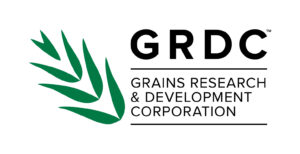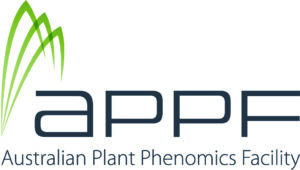TROPAG CONFERENCE 11 – 13 November 2025 l Brisbane, Australia
Sponsor profiles
Thank you to our 2022 partners and sponsors:

Our world-class research, development and extension makes a real, on-ground difference to Queensland’s agriculture and food industries. We are uniquely positioned, through the Department of Agriculture and Fisheries, to ensure our valuable agriculture and food industries are supported, resilient, responsive and sustainable. We work with businesses and industry across Queensland to take advantage of opportunities created by cutting-edge technologies, new products and expanding markets. We use practical industry know-how combined with high-level scientific skills and experience, to develop improved genetics and better varieties, and drive innovation in production systems, plant and animal protection, supply chains and market access. Through strategic partnerships, we deliver programs and activities to advance industry profitability and keep Queenslanders healthy.
 As world leaders in agricultural research, Australian scientists are encouraged and supported to use their skills for the benefit of partner countries while at the same time contributing to solutions to meet Australia’s own agricultural challenges.
As world leaders in agricultural research, Australian scientists are encouraged and supported to use their skills for the benefit of partner countries while at the same time contributing to solutions to meet Australia’s own agricultural challenges.
The diversity of our own agriculture sector, which extends from the tropics to the arid zone and to cool temperate continues to thrive while operating in highly variable and challenging climates with minimal external subsidies. This suggests the Australian agricultural sector has valuable knowledge and expertise to share with other countries facing similar challenges, including farmers, rural poor, consumers, researchers and policymakers.
Since 1982, ACIAR has supported research projects in the Indo-Pacific region. Our research projects focus on agribusiness, climate change, crops, fisheries, forestry, horticulture, livestock systems, social systems, soil and land management, and water.
To date, ACIAR has commissioned more than 1,500 research projects in approximately 35 countries, partnering with more than 400 institutions, including 60 Australian research organisations in any one year.
We broker, facilitate, invest in and manage strategic partnerships with public and private research institutions to improve the productivity and sustainability of agricultural systems and the resilience of food systems in partner countries.
 The Grains Research and Development Corporation (GRDC) is responsible for investing in research, development and extension (RD&E) to drive the discovery, development and delivery of world-class innovation for Australian grain growers.
The Grains Research and Development Corporation (GRDC) is responsible for investing in research, development and extension (RD&E) to drive the discovery, development and delivery of world-class innovation for Australian grain growers.
The Australian grains industry plays a vital role in Australia’s economy, comprising an estimated 30% ($27.5 billion) of the total value of agricultural production in 2021-22. GRDC invests over $180 million a year in RD&E on behalf of growers to enhance the productivity, profitability and sustainability of their farm businesses, with flow on benefits to the grains industry and wider community.
We partner with leading international experts on innovative RD&E across a diverse portfolio of over 700 projects.
Our purpose is to invest in RD&E to create enduring profitability for Australian grain growers. Our vision is a profitable and sustainable Australian grains industry, valued by the wider community.
For more information about us, our investments, and priorities visit www.grdc.com.au
 Hort Innovation is the grower-owned horticulture Research and Development Corporation for Australia’s $15.2B horticulture industry.
Hort Innovation is the grower-owned horticulture Research and Development Corporation for Australia’s $15.2B horticulture industry.
In partnership with growers, leading local and overseas researchers, industry bodies and fellow RDC’s, Hort Innovation delivers projects that drive more sustainable, globally competitive and profitable horticulture industries.
Hort Innovation delivers more than $120 million in research, development, trade and marketing activities across the horticulture industry each year with funding from the Australian Government, grower levies and other sources.
For more than 20 years, Illumina has aspired to improve human health by unlocking the power of the genome. Now, next-generation sequencing is enabling the discovery and understanding of the structure, function, and diversity of plant and animal genomes. Through innovation and collaboration with researchers around the globe, we are driving genomic breakthroughs that promote food security and conservation efforts. While the rate of progress continues to accelerate exponentially, we have only just begun to discover the true impact of genomics in agriculture. Knowing human health starts with an adequate and nutritious food supply and a safe and sustainable environment inspires us to push the boundaries of our imagination and drive innovation in agriculture.
 The Centre for Agriculture and the Bioeconomy brings together QUT’s brightest minds in agriculture and bioeconomy research to help feed the world sustainably and develop cleaner, greener bioproducts. Our unique mix of expertise in plant and industrial biotechnology, synthetic biology, soil science, process engineering, industrial chemistry, social science and business creates a continuum of research and development from laboratory through to real-world impact.
The Centre for Agriculture and the Bioeconomy brings together QUT’s brightest minds in agriculture and bioeconomy research to help feed the world sustainably and develop cleaner, greener bioproducts. Our unique mix of expertise in plant and industrial biotechnology, synthetic biology, soil science, process engineering, industrial chemistry, social science and business creates a continuum of research and development from laboratory through to real-world impact.
We’re helping to feed the world by developing more resilient and nutritious tropical crops such as bananas, sugarcane, chickpea, mungbean, pigeonpea, rice, sweet sorghum and tropical fruits for Australia, Africa and South-East Asia.
Our research is discovering innovative ways to manufacture renewable high-value fuels, chemicals, animal feeds and other bioproducts from agricultural wastes.
We’re generating knowledge and solutions to make Australia’s farms more sustainable and profitable, improving productivity and biodiversity through better management of crops, soil, water and energy.
The Australian Plant Phenomics Facility (APPF) is a world-leading infrastructure facility that underpins innovative plant phenomics research to accelerate the development of new and improved crops, healthier food and more sustainable agricultural practice.
The APPF is a national facility, available to Australian and international plant scientists, offering access to infrastructure that is not available at this scale or breadth in the public sector anywhere else in the world. Our facilities are based around automated image analysis of the phenotypic characteristics of extensive germplasm collections and large breeding, mapping and mutant populations. We utilise robotics, imaging and computing to enable sensitive, high throughput analyses to be made of plant growth and function. New technologies are continually being developed and implemented to ensure we remain at the forefront.
How we support researchers:
- Development of advanced plant phenomics technology and methods, internationally competitive infrastructure and highly skilled, multi-disciplinary workforce.
- Consultation on plant phenomics, best practice protocols, project design and statistical layout.
- Facilitation of novel research approaches through access to, and training in, the use of plant phenomics infrastructure involving (i) Research hotel model – researchers working alongside our experts, or (ii) Full service delivery model – where APPF technicians undertake projects on behalf of researchers.
- Analysis of images, preparation of growth curves, and access to datasets and visualisation tools.
- Bioinformatics and biometry by performing quality control processes on datasets, providing standard data analysis, provision of open source algorithms and access to analytical pipelines, and assisting researchers in processing and interpreting complex data.
- Data management including data storage and access to data sharing tools.
- Education and training in plant phenomics, image analysis, bioinformatics, biometry and statistical design.
 ‘Biora by MineARC Systems’ engineers and manufactures Plant Growth Chambers that allow for the development, refinement and repetition of specific conditions. Our successful capabilities in creating controlled environments for industrial safety over the past 25 years has allowed us to produce a range of reach-in and walk-in chambers that meet the specific needs of plant science and agricultural biotechnology applications. With Biora, you can enjoy the benefits of innovative functionality, versatility and the replication of any environmental condition within a robust, portable shell.
‘Biora by MineARC Systems’ engineers and manufactures Plant Growth Chambers that allow for the development, refinement and repetition of specific conditions. Our successful capabilities in creating controlled environments for industrial safety over the past 25 years has allowed us to produce a range of reach-in and walk-in chambers that meet the specific needs of plant science and agricultural biotechnology applications. With Biora, you can enjoy the benefits of innovative functionality, versatility and the replication of any environmental condition within a robust, portable shell.
 AgriFutures Australia proudly focuses on the building a rich future for Australian agriculture. We live and work in the regions and represent the interests and aspirations of primary producers and rural communities, delivering real value in everything we do.
AgriFutures Australia proudly focuses on the building a rich future for Australian agriculture. We live and work in the regions and represent the interests and aspirations of primary producers and rural communities, delivering real value in everything we do.
Our vision is to grow the long-term prosperity of Australian rural industries and communities through:
- Research, development and extension programs for established industries that do not have their own Research & Development Corporation (RDC), including the rice, chicken meat, honey bee and pollination, thoroughbred horse, pasture seeds, export fodder, ginger and tea tree oil industries.
- Delivering programs that proactively address sector-level challenges and opportunities including research to inform national policy issues, tech innovation and adoption, to industry challenges that require widespread engagement across the sector.
- Research and analysis to understand and address important issues on the horizon for Australian agriculture. Programs include evokeAG. and growAG..
- Identifying and capitalising on global opportunities and challenges and encourage the uptake of new technologies to strengthen Australian agriculture’s position and future growth through evokeAG. and growAG..
- Research, development and extension programs that enable emerging and growing industries to reach new markets and address their barriers to acceleration including the pomegranate, jackfruit, and insect industries.
- Initiatives that attract capable people into careers in agriculture, build the capability of future rural leaders, and support change makers and thought leaders. Programs include the AgriFutures Horizon Scholarship and the AgriFutures Rural Women’s Award.


